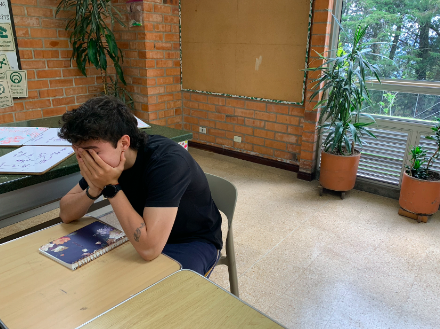Special Crisis: Nuclear Threat Emerges in Asia
On Tuesday, April 4th, Special Crisis Commission received a top secret document claiming a Japanese submarine advanced to the North Korean shore, threatening war between the two countries.
“Undisclosed submarines, multiple submarines, have been deployed in the sea of Japan. Entering unidentified objects and submarines will be shut down by the Japanese government.” Shinzo Abe, Japan’s prime minister, declared. “The submarines have no orders to attack first, but to be in response of an attack.”
Japan fears North Korea’s increasing nuclear military advances but their response has worried several leaders of the committee. The nation is risking its relationship with the United States, which aids in 50% of Japanese economy.
Angela Merkel proposes that economic and political sanctions should be implemented against Japan’s and India’s inappropriate use of weapons. Germany proposes a coalition against these nations, similar to the one executed in Iraq 2003, on the grounds that they violate international law.
Other leaders responded much more radically to Japan’s military decisions and to North Korea’s military actions, who sended military troops to its South Korean border for its protection.
“Japan must abandon their military advances and submarine warfare immediately. They have 48 hours, otherwise I think our military allegiance will be suspended,” Vladimir Putin, President of Russia, said.
Addressing North Korea and the United States, Putin continued, “I will be forced to sabotage North Korea and let them starve with their own filth. I respectfully ask Mr. Trump to make his allied state [Japan] comply with international law. If another nation is willing to go against the principles that rule us this threat won’t go unanswered.”
The crisis ended with no solution, the leaders and representatives left the room looking very somber and have decided to meet in three months.
In addition to the military crisis between Japan and North Korea, a number of the wealthiest participants including Bill Gates and Mark Zuckerberg, threatened to move to Japan.
Their weakening ties with presidents Donald Trump, Angela Merkel, Theresa May, and Vladimir Putin, over their disagreement on nuclear weapon treaties, have prompted the group to ally with rivaling nations.
“Are you willing to break international law and risk your protection by the United States, your home country?” asked Theresa May, when the members stated their position.
“Yes,” was Bill Gates and Michael Zuckerberg’s simple answer.

























